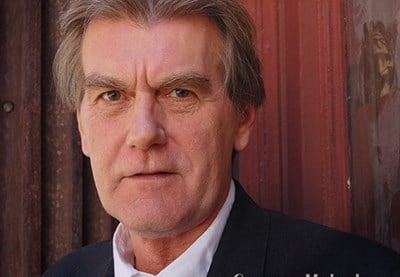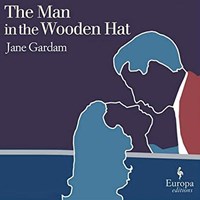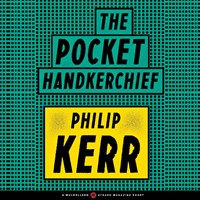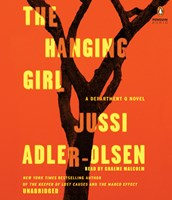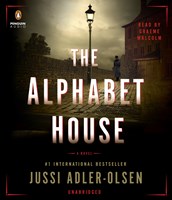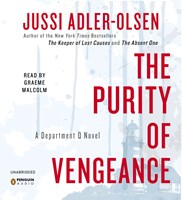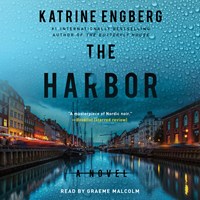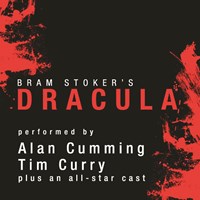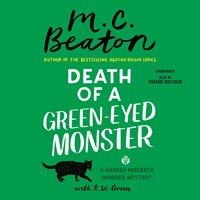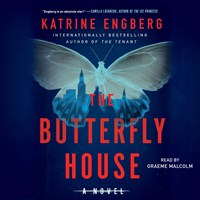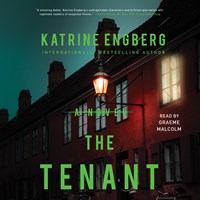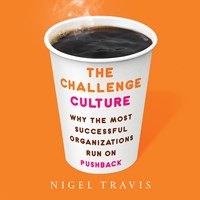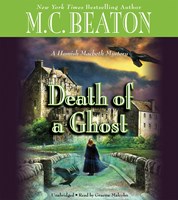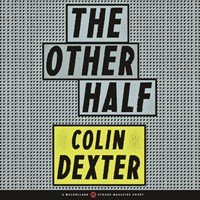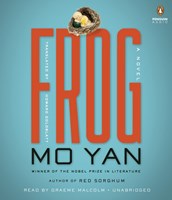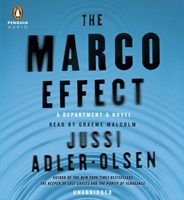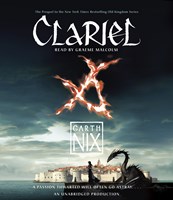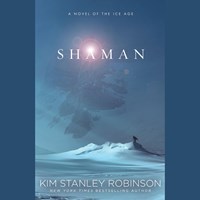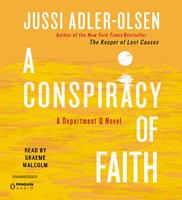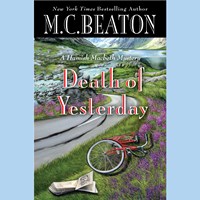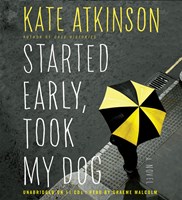Recent audiobooks
Talking with Graeme Malcolm
Pay award-winning narrator Graeme Malcolm a compliment about his performance of Jussi Adler-Olsen’s Department Q mysteries, and he’s liable to say, “Thank you, but there are some books that just read themselves. Aren’t I lucky?”
Indeed. As are Mr. Adler-Olsen and many other authors whose work is performed by the Scottish-born Brit. Daniel Mason, author of THE PIANO TUNER, wrote the actor to say that he couldn’t imagine the narration being done by anyone else. “That does make you feel lovely,” says Malcolm, who also occasionally writes to authors to thank them for writing an extraordinary work.
Malcolm’s acting ambitions began early. “I grew up in a home full of books. In play readings at school, I was given the larger parts because I was a more fluent reader. That was nice. Then I discovered that I could entertain my peers. That was huge.”
Off to acting school he went. The career in audiobooks began after he moved to the States, volunteered to record for a blind acquaintance, and thought, “This is fabulous.” He connected with the American Federation for the Blind’s Talking Books program, for which he performed “everything from Chaucer to Beckett,” and grew adept at recording without needing correction because books were recorded on both sides of reel-to-reel tape. “That meant no cutting and splicing. The corrected version had to fit into the same space as the original.
“Toward the end of the AFB program, they began to welcome commercial producers into the studios, so the segue into commercial work was pretty seamless for me. I’m eternally grateful.”
These days, the New York-based actor balances theater with audiobooks by treading the boards at night and recording by day. Audiobook assignments appear as PDFs on his iPad, a blessed change from the days of “lugging about multiple manuscripts.” He moves them into a notation app; then he reads through, gets a feel for pace, atmosphere, and characters, and makes notes on pronunciation “so that there won’t be any big surprises when I sit down in front of a microphone.”
Then into the studio he goes.
Not his own--“I’m not interested in editing or engineering”--but a professional production studio, “where I can read to someone, the engineer usually, even though it’s through a pane of glass. I like to know that there is one person, at least, who is listening.
“If there’s humor, I try to plumb it. And if it’s the opposite, I’m involved without becoming drenched in sentimentality. There’s a Brechtian distance while recording, where you don’t act something out fully, but you’re present in empathy with the characters in the room.” He ponders for a moment before continuing, “I’m tired at the end of a four- or five-hour session. It comes of sitting up straight, not moving, not making any distracting sounds. It becomes meditative. I use that word advisedly. I lose myself in the story--by the time I’m done, I feel that I’ve been someplace very other.”--Aurelia C. Scott
[FEBRUARY/MARCH 2018]
© AudioFile 2018, Portland, Maine
[AUG/SEP 2003]--Graeme Malcolm is another narrator whom we hope to hear more often. His voice conveys a certain, compelling, listen-to-this quality. His reading from Shackleton's journals in ROUGH WATER made a lasting impression. He participated in several of Listen & Live's Adrenaline series anthologies. THE PIANO TUNER by Daniel Mason got attention from us earlier this year, as did the celebrated A SINGLE SHARD by Linda Sue Park. Graeme presents the story of the poor Korean boy yearning to become a potter with such skill and emotion that the audiobook could be one of this year's most honored children's titles—as an Earphones Award winner, Audie Award Finalist, ALA Notable Recording, and YALSA selection. In this issue Graeme does a fine job with the difficult and complex THE COFFEE TRADER and offers readers an introspective listen with Graham Swift's THE LIGHT OF DAY.
Photo courtesy of the narrator
The latest audiobook reviews, right in your inbox.
Get our FREE Newsletter and discover a world of audiobooks.


